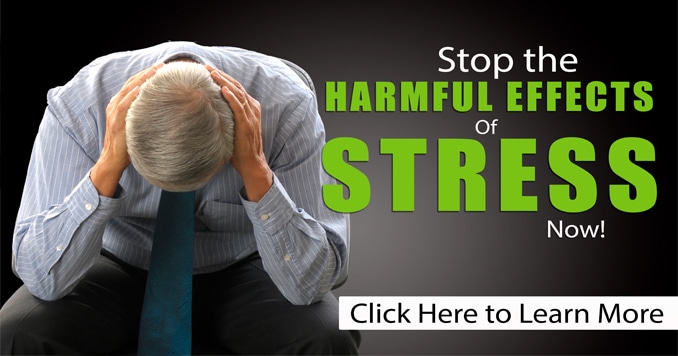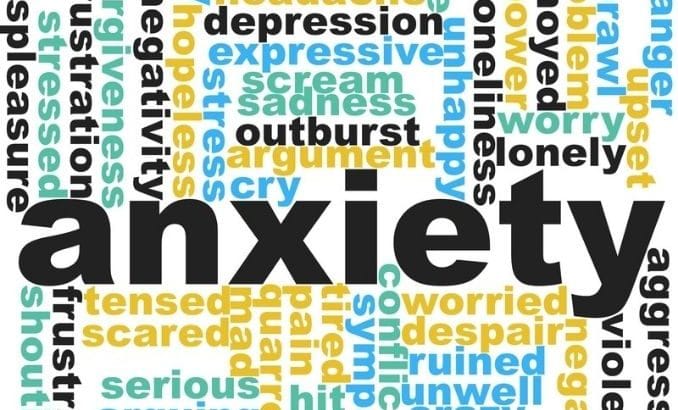What is Anxiety?
Anxiety can be described as; a physical response to specific thoughts you’re having or specific circumstances in your life. Learn how to identify anxiety; it often affects the way your body works. It influences your thoughts and behavior. Anxiety can impact anyone regardless of age, even children. Recognizing its signs is crucial for seeking appropriate support and managing its effects on daily life.
For example, many children experience nerves and apprehension about the first day of school. The important thing to know about anxiety is that it is actually a very normal experience. It becomes abnormal when you experience anxiety consecutively for prolonged periods of time that inhibit the way you're living your life.
It is worth noting that anxiety can be very beneficial. Anxiety is one of the body's responses to danger, stress, and potential accidents.
Having anxiety can actually help you when you are faced with danger. That physiological response comes into play when you're crossing the street or when you're driving your car and you think that something might happen that causes you to make a quick decision.
It’s the symptoms of anxiety in your body that will actually bring your attention to what's going on and signal you to have that fight, flight, or freeze response. The biggest benefit of anxiety is its forewarning of dangerous situations.

Drugs and Alcohol
Often people experiencing anxiety turn to drink or end up using marijuana. Alcohol and drugs only help settle your anxiety temporarily, but they actually don’t eliminate the anxiety, so can actually compound the situation. It is very common for people in need of help for severe anxiety to go through a primary addiction treatment first. You need to address the drug and alcohol problem first before getting to the real root of the problem. Self-medicating is not the answer and one should seek help if anxiety is becoming a frequent occurrence.
Symptoms of Anxiety
It's important to know that anxiety is a 3-part process. It affects you physically, it affects your thoughts, and it also affects your behaviors.
1. Physical symptoms
When you feel anxious, your body is preparing itself for some sort of perceived attack or danger. The heart will start beating faster and pumps more blood into your extremities. This physiological response is there so that you can run, freeze or fight back. It also affects your adrenal glands. Many people are suffering from adrenal fatigue because their adrenals are pushing out cortisol all the time. In this demanding and fast-paced world, people are often suffering from a low level of anxiety because their body is in a constant state of fight, flight, or freeze. These are the common physical symptoms:
-
- Increased heart rate
- Excessive sweating
- Nausea
- Stomach discomfort
- Dizziness and lightheadedness
- Delirium
- Headache
- Numbness and tingling
- Trembling, and shaking
If these symptoms are occurring in your life for an extended period of time, you may need to seek out professional help.
2. It affects your behavior
You might avoid certain situations, like last-minute canceling or social engagements. Also, you might have difficulty speaking at work meetings, pass up promotions for fear of failure, or have an excessive fear of making mistakes. You may be almost paralyzed at this thought of stepping outside your comfort zone or moving up the ladder at work, or you might avoid going to your doctor's appointments because you find that stressful.
3. “If that feeling was taken away from you today, what would you do differently?”
This is an important question to ask yourself. It would give you a better understanding of whether your anxiety is actually controlling a portion of your life.
4. It affects your thoughts
Anxiety really augments the way you see and think about events and situations. As a result, you are very focused on the negative outcomes in your life and tend to worry. It is common to have this thought: “What will happen if…”.
“What happens if I get sick and I can't go to work?”
“Another Question: What will happen if I fail in this interview?”
“What will happen if I forget to lock the door?
Your mind is constantly thinking about the worst-case scenarios. This is some ways is a natural state for humans to have. Naturally, our brain is hyper-vigilant looking for problems. Now, this becomes a serious issue when it's already impacting the way you're living your life. This is something that we really need to take a look at because this is probably impeding the way you're living your life. Excessive worrying is a big sign and symptom of anxiety, highlighting the importance of understanding how to identify anxiety. It often accompanies physical manifestations like rapid heartbeat or sweating and can influence behavior, affecting individuals of any age, including children. Recognizing these signs is vital for seeking support and effective mana
3 Ways in Dealing And How To Identify Anxiety

1. Breathing
Taking a full belly breath is one of the top tips for combatting anxiety. Full deep breathing is the key. Shallow breathing only increases your anxiety. When you're breathing into your belly, it naturally begins to relax your body. And really focusing on the extended exhale will activate your sympathetic nervous system and that should begin to calm you down. Count your belly breathing from 1 to 10.
2. Talk to somebody
This is very hard for anxious people, as is for anybody who is experiencing any uncomfortable feelings. Go ahead and talk to a friend or talk to a professional. Simply talk about your anxiety.
3. Aerobic Activity
When you are experiencing anxiety, your body pumps out adrenaline. Use up that excess energy by doing any physical activity, like lightly jogging, dancing in your living room, or taking a brisk walk outside. Aerobic activity will:
-
- Burn away stress hormones
- Tire out your muscles
- Create a healthy distraction
- Force healthier breathing
- Release endorphins to improve your mood
Shyloe Fayad is Okanagan-based and the CEO & Founder of Happiness Habits and Radical Wondering Collective. In this article she discusses anxiety, what it is, and how do you know if you have it. And this is the 1st article in a 3 part series.
Embark on a transformative journey with our 14-Day Stress Reduction program and learn how to identify anxiety. Through mindful practices, guided meditations, and expert techniques, discover a pathway to tranquility. Unwind the knots of tension, embrace serenity, and cultivate resilience. Take the first step towards a calmer, more balanced life today.




